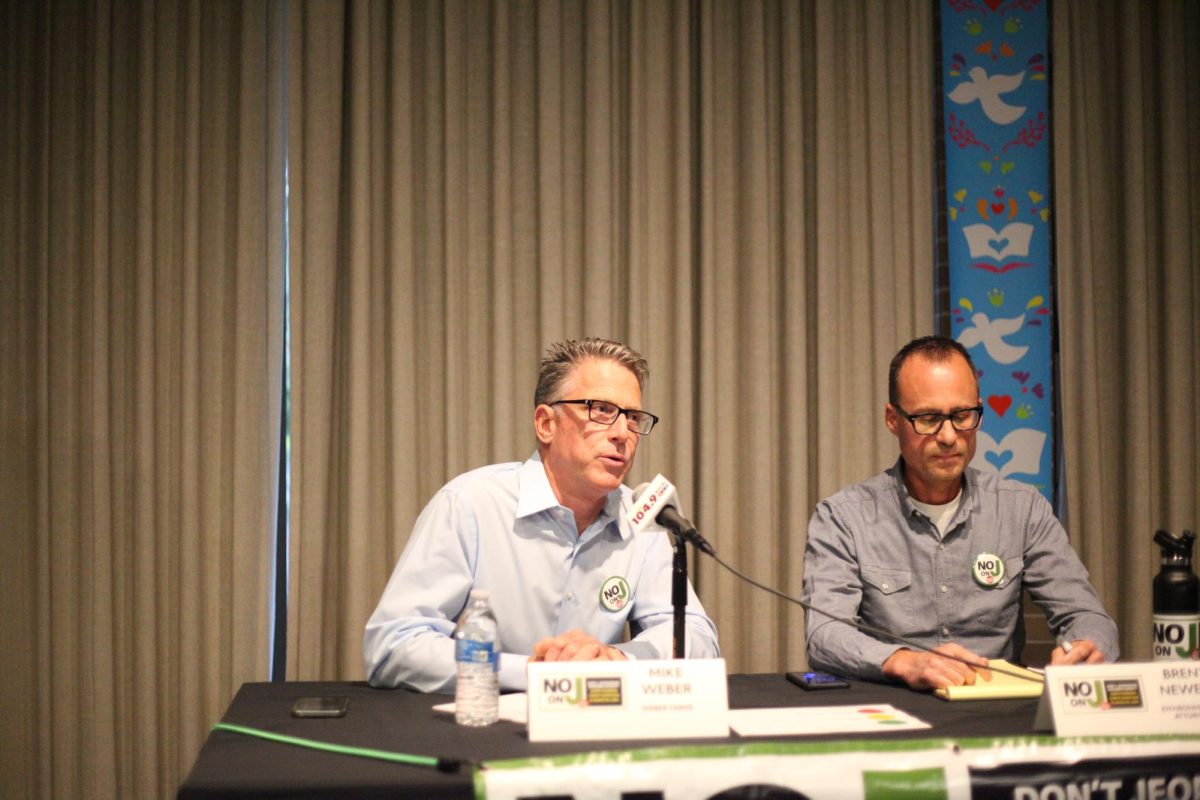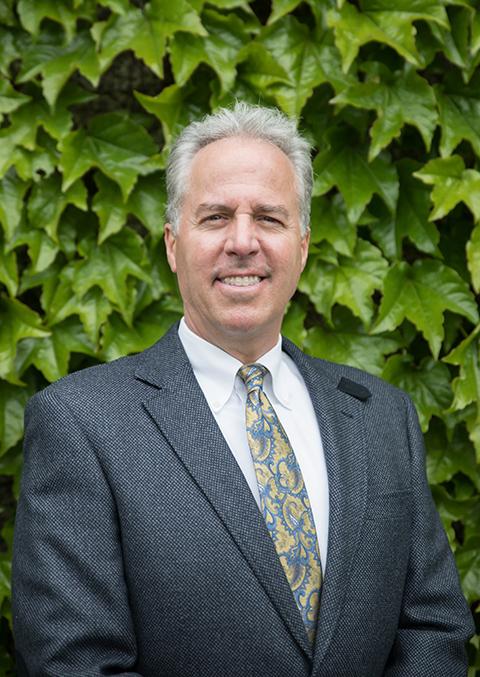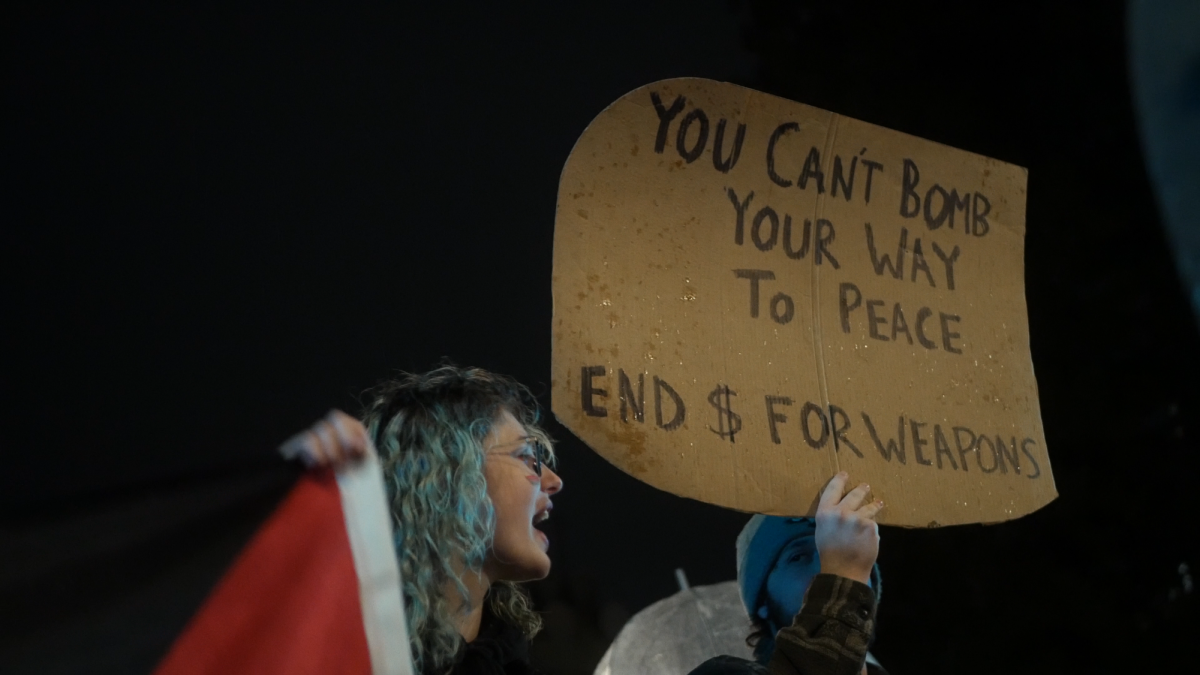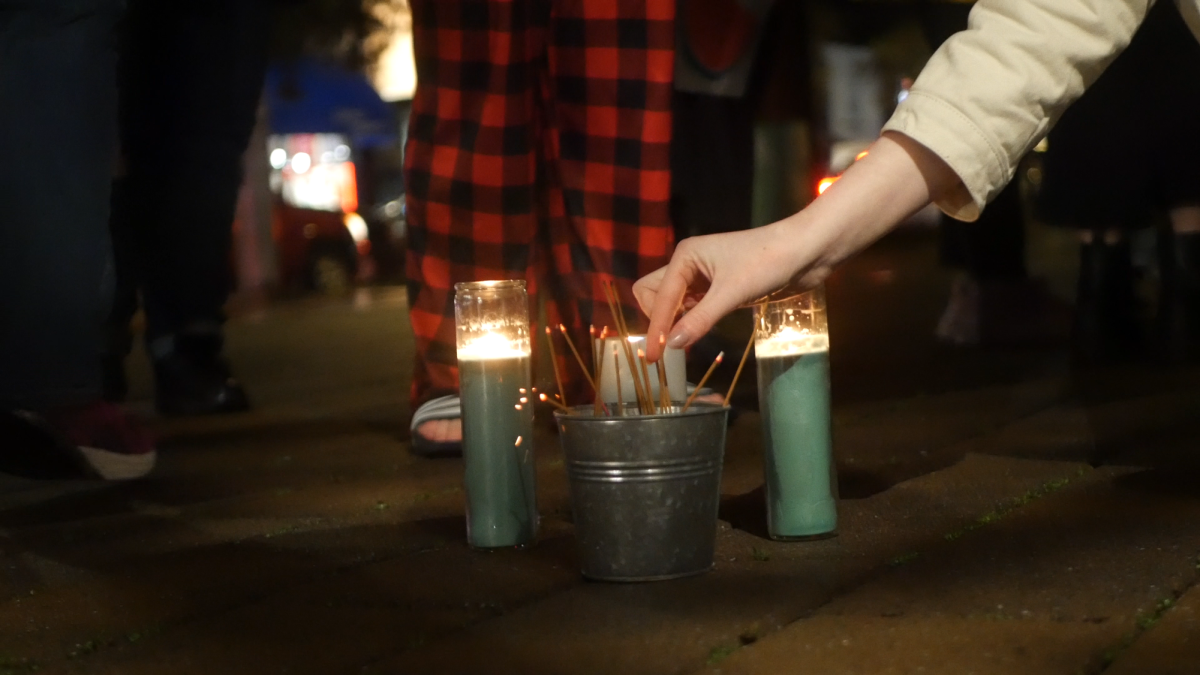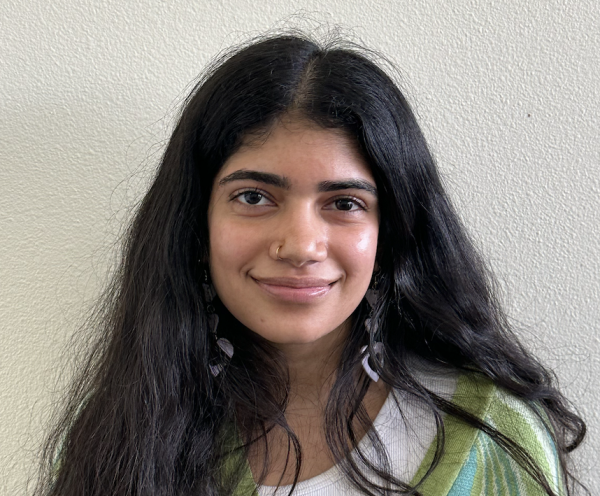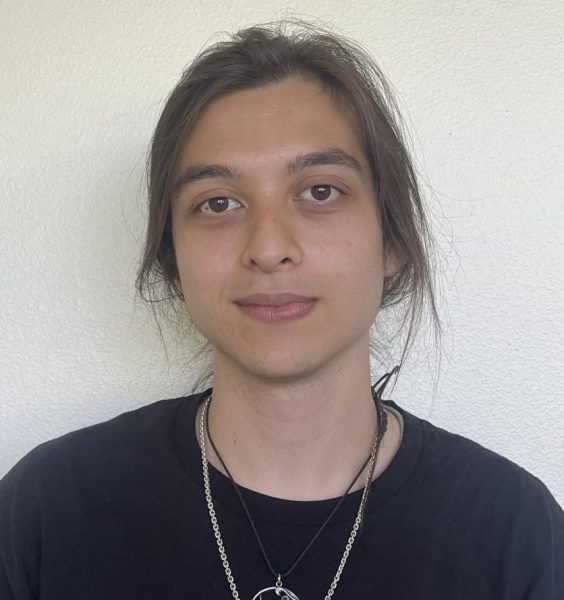“As far as you can see, there’s people living under plastic, sheets of plastic. Makeshift tents,” said Tarik Kanaana, a Palestinian and Health and Nutrition Coordinator at The Children’s School at SSU. “People and kids when they’re walking, they’re walking through sewage.”
Kanaana starts his day like most, grabbing his coffee and watching the news.“The videos [about Rafah] are getting uglier and uglier,’ he said, “And they started out very ugly.” He and around 30 others met this Valentine’s Day in Santa Rosa at the Old Courtyard Square to protest and bring attention to the ongoing genocide in Gaza, which, as of February 12, 2024, has left Palestinians with no safe zones.
“All the people in Gaza have been driven down to the southern border, and now they’re starting to attack at the southern border. That started a couple of days ago,” said Kanaana. According to reports from Al Jazeera, over 100 people in Rafah are being killed daily.
In response to the air strikes and announcement of the Raid on Rafah, protests have erupted in multiple cities all across the world, including London, Madrid, Istanbul, and San Francisco, where protestors blocked the Golden Gate Bridge. This, according to ABC7 News “[brought] the Wednesday morning commute to a halt.”
“Right now, 60 percent of Americans support having a ceasefire,” said Kanaana. “At some point, it’s going to reach a critical mass where they can’t ignore it.” Community members advocating for a ceasefire on Valentine’s Day in Santa Rosa took turns making speeches, singing songs, and lighting incense for the Palestinian children being killed.
Celine King and Kasper Bolling, two high school students from Sonoma Valley High School who attended the Rafah gathering, voiced their support for the movement. “We have to tell people… that women are having miscarriages and dying in Gaza,” said King. “[This] is a feminist cause… “And [I’ve] been really upset lately with seeing the huge divide between Western feminism and feminism that considers intersectionality.”
The UN Office of the High Commissioner for Human Rights released a statement on Monday, reporting that “Palestinian women and girls in detention have… been subjected to multiple forms of sexual assault, such as being stripped naked and searched by male Israeli army officers.”
UN Experts also noted, “Palestinian detainees were reportedly raped while others were reportedly threatened with rape and sexual violence,” and that the IDF had reported taking photos of female detainees in “degrading circumstances”, and uploading them online.
King said she was shocked seeing how mainstream news media have been describing Palestine, with news anchors using the word ‘alleged’ during any me
ntion of the genocide. King expressed concern to her mom, also watching at the time, who brushed it off.
“The wording is really impactful because we know a genocide is happening. The most experienced lawyers of international law have told us, and nope, no one‘s listening. People are even diminishing it on national news,” King said. “Wording creates culture.”
Kasper Bolling described the movement as being peaceful and for a free Palestine, while also “tak[ing] care, love, and support to demonstrate allyship with every single minority group that has been genocided.”
“There’s a lot of Jewish people that feel unsafe or ostracized within their communities for being radicals and antizionists,” said Bolling, “And to those people, change starts from within.”
Hanan Huneidi is a local Palestinian community leader and a member of Sonoma County for Palestine. The group played a large role in Cotati’s recent passing of a ceasefire resolution, the first of any town in Sonoma County. Huneidi worked on the Petaluma ceasefire resolution with four Jewish people. She was the only Palestinian who worked on the resolution, she said.
“All of the other Jewish folks, and there’s so many Jewish folks showing up, their voices are really being erased,” said Huneidi. “What is being spun is that the only Jewish Voice is [those] from B’nai Israel Synagogue.”
Huneidi has been to Israel-Palestine a few times, where she had to go through various checkpoints and was strip-searched at rifle point. “We have special colored license plates so that we’re easily identifiable. It’s scary,” she said. “It’s a very scary situation to be Palestinian and to be there.”
Sonoma County for Palestine has also been trying to push forward ceasefire resolutions throughout neighboring city councils. This was after the group had originally attempted to go to California’s Congressional representatives Mike Thompson and Jared Huffman.
“When speaking to… Thompson and Huffman, they’ve been fairly disrespectful to us, dismissive, and haven’t been willing to work with us.” Huneidi said. Huffman told her that Palestinians need to take responsibility for what happened on October 7. “I reminded him that Palestinians are not the equivalent of Hamas.”
“Palestinian citizens are in general, very peaceful people. They just want to be able to survive,” said Huneidi. “And to blame all Palestinians for what Hamas did is really rather racist, to be honest,” she said.
Women’s and Gender Studies Lecturer Wendy DeSouza, described how U.S citizens play a role in the Israel-Palestine conflict. “That’s our taxpayer money. That’s our political capital, our economic capital being pulled toward the indiscriminate killing of Palestinians in Gaza,” said DeSouza. “It’s not going to end after six, eight weeks. It’s not going to end after Rafah,” she said. “I can only see this as a genocidal assault on the Palestinians of Gaza. I don’t know of any other way of looking at it.”

